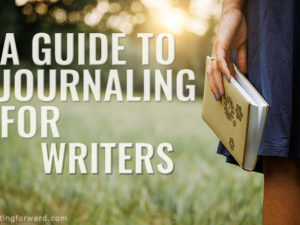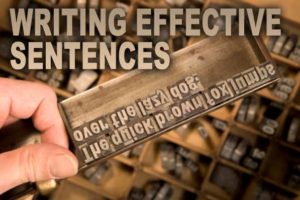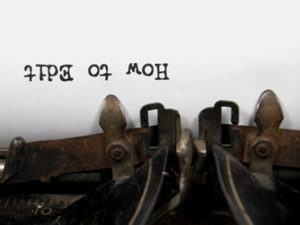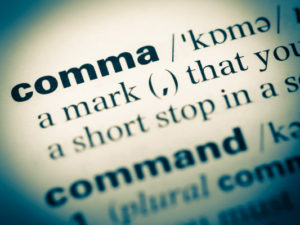
Ten Grammar Rules Every Writer Should Know
The more experience I gain as a writer, the more I’m convinced that writing is one of the most difficult skills to master. It’s not enough to tell a great story, share an original idea, or create an intriguing poem; writers are also obligated to pay diligence to the craft. While the content (or message)…Read More

A Guide to Journaling for Writers
The world of journaling is fascinating and expansive. There are people who make their own notebooks and fill them with stunning artwork and gorgeous lettering. Others spend months writing in a journal and then burn it when they get to the end, only to start another one. Some people use cheap spiral-bound notebooks for journal…Read More

Are You Writing Effective Sentences?
Nothing ruins a great piece of writing like weak words and poorly structured sentences. We’ve all been there. You’re working through your first draft or perhaps making your way through revisions. The scene plays out in your mind like a movie. But when you try to put it into words, it just doesn’t flow right. In…Read More

Editing Tips for Writers
If you’re the token writer at your office, among your friends, or in your family, then you’re probably asked on a regular basis to edit, review, or proofread written documents. Academic essays, business letters, and resumes will land on your desk with the word “HELP!” scrawled across the top. Or maybe you’re ready to get…Read More

10 Good Grammar Resources
This post contains affiliate links that earn commissions. There’s good grammar and bad grammar, proper grammar and poor grammar. Some writers have fun with grammar and for others, grammar’s a bore. But in order to communicate effectively and for our writing to be professional (and publishable), we all need reliable grammar resources. There is no grammar…Read More

Creative Writing Prompts for Music Lovers
Today’s post features a selection of prompts from my book 1200 Creative Writing Prompts. Enjoy! At some point in their lives, all artistic people run into creative walls. Writers lose inspiration so frequently, they have their own special term for it: writer’s block. Luckily, writing ideas don’t have to magically appear in order for creativity…Read More

Poetry Writing Exercise: Creative Wordplay
Charles Dickens invented the word boredom. Sylvia Plath coined the term dreamscape. William Shakespeare gave us bandit, swagger, and gossip, along with over 1,700 other words that previously didn’t exist in the English lexicon. Writers have a long history of inventing new words, which shouldn’t come as a surprise. When we encounter an idea or…Read More

Storytelling: What is a Plot?
Today’s post includes excerpts from What’s the Story? Building Blocks for Fiction Writing, chapter two: “Plot.” It’s a book that lays out the fundamentals of creating fictional stories, equipping you with the basic skills necessary for writing stories that engage. Enjoy! What is a Plot? A plot is a sequence of related events in a…Read More

How to Analyze Poetry
An expert is someone who has mastered their craft through a process of study and practice. Poets are no different. It takes years to become an expert poet. An important part of studying poetry is analysis. Examining the form, content, and syntax of a poem helps us develop a better understanding and deeper appreciation —…Read More

Punctuation Marks: Commas and Clauses
There’s a fine art to using commas. Today we’ll look at how commas work with clauses — both dependent clauses and independent clauses. And don’t worry if you’re not sure which clause is which. Everything will be explained. Independent Clauses and Commas An independent clause can stand alone as a sentence: I watch movies. Two…Read More



